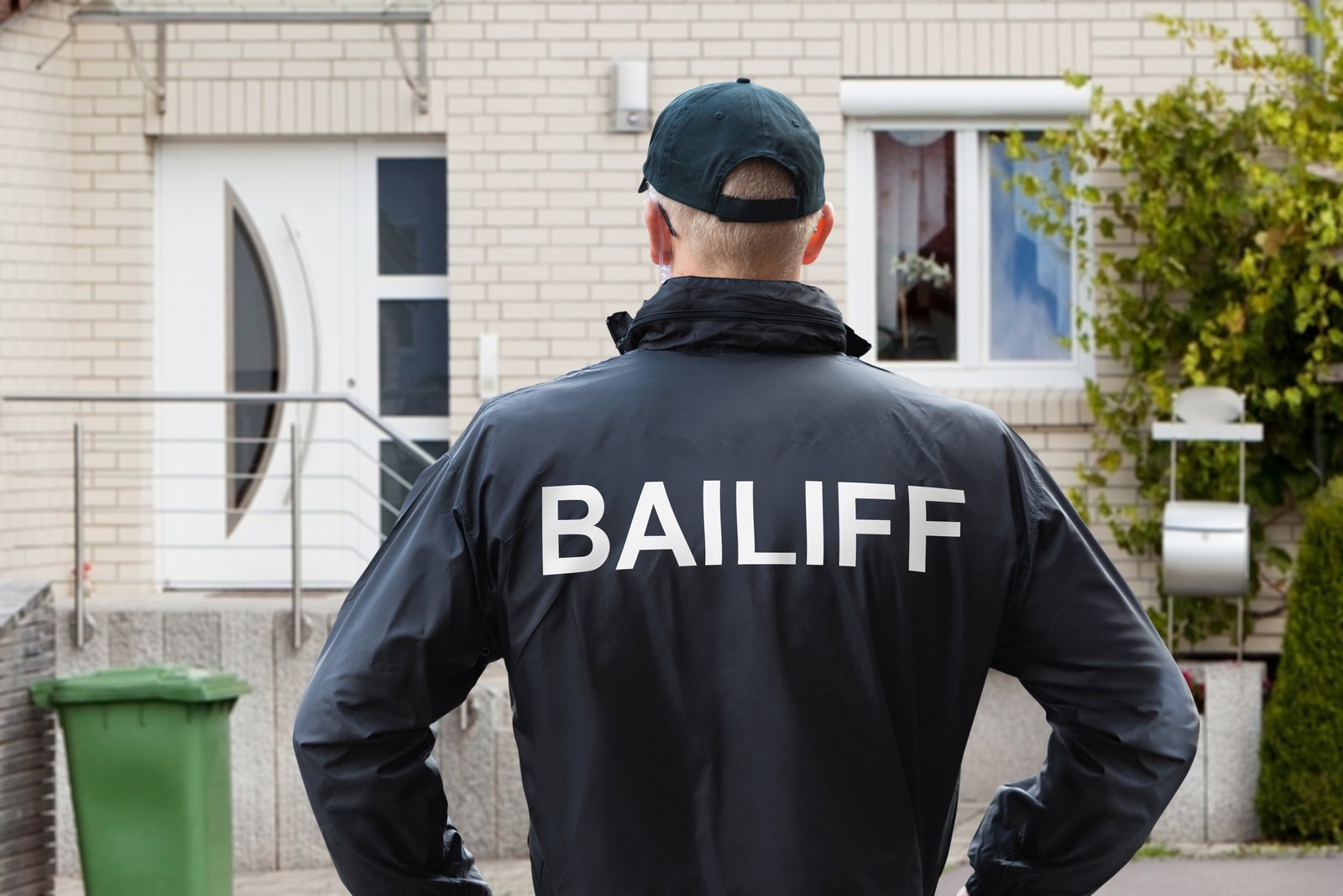If you’re finding it tough to keep up with your debt repayments and find yourself facing bailiff action, we’re here to help. Check out our quick guide to how to stop bailiffs
When you’re struggling to keep up with your debts, the prospect of a bailiff visit can make a stressful situation even worse. Bailiffs, or enforcement agents, are people authorised to collect a debt on behalf of a creditor. They can collect a variety of different types of debt including council tax, County Court Judgement arrears, parking penalties, child maintenance, income tax, national insurance, VAT, and tax credit overpayments. Bailiffs can visit any property in England and Wales, usually your home address or registered business office, but they shouldn’t come to your workplace if you’re employed by someone else.
When dealing with bailiffs, it’s important to remember that you do have rights and you don’t have to feel intimidated or bullied when an enforcement agent arrives at your door. Read on for our quick guide to how to stop bailiffs.
Don’t ignore a Notice of Enforcement
Before bailiffs arrive at your home or business, you should receive notice in writing. This is known as a Notice of Enforcement. While receiving a letter from bailiffs can be distressing, it’s best not to ignore it – facing the situation head on can help stop bailiff action in its tracks. If you choose not to act, bailiffs can legally visit your home after seven days (not including Sundays or Bank Holidays) to attempt to collect payment and can even charge extra fees. Make sure that the notice of enforcement has the correct information. It should have been sent from a registered bailiff and include your name, address, the debt and amount you owe, and the next steps.
Don’t let a bailiff enter your home
It’s almost always best to prevent bailiffs from entering your home. There’s no reason why you can’t deal with them through a locked door or over the phone. There are a few instances where bailiffs do have the right to force entry, but you should still be given the opportunity to pay your debt without allowing access to your home. Make sure you keep your doors and windows locked and let all the inhabitants know not to answer the door. Try to stay as calm as possible when dealing with bailiffs and remember that they can only attempt to enter your home between 6am and 9pm.
Conceal or move your goods
If you can’t pay your debt and the bailiffs do enter your home, they’ll probably start listing goods that could be removed and sold to recover the funds. You don’t have to sign this Controlled Goods Agreement, but you’ll usually be presented with a payment plan option rather than losing your items. Bailiffs can’t remove any goods that you don’t own, and they can’t take any essentials like your cooker, fridge, or washing machine. However, they can take goods that they find outside your home such as your car. Legally, you can remove or hide items before the bailiff visits (afterwards it’s a criminal offence), and you can shut your blinds and windows so they can’t see in. You can also move your car and park it in a secure location elsewhere.
Check their paperwork
Stop the bailiffs if they don’t have the right paperwork. A registered enforcement agent should carry ID like a badge or ID card. They should also be happy to share name of the company they work for and the phone number for head office. Check their credentials against the certified bailiffs register or contact the court if you want extra reassurance.
If they say they’re a debt collector, not a bailiff, then you can ask them to leave. Debt collectors don’t have the same powers as bailiffs and must go if you ask them to. Any documentation, such as a court writ, can be passed through the letterbox or shown through the window. Check that all the documents are correct and in date; if it’s not your debt or has already been paid, make sure you have the evidence ready to prove this.
Don’t allow any threatening behaviour
Bailiffs can only force entry into your home or business if they’re collecting unpaid Magistrate Court fines or tax debts being collected on behalf of HM Revenue & Customs. Even so, they can only use reasonable force to do so such as asking a locksmith to open your door rather than breaking it down. If they refuse to leave, act in a physically threatening manner, or you feel they’re harassing you, you can raise a complaint or call the police.
Seek debt advice
If you’re worrying about how to stop bailiffs, make the most of the time you have after you receive the Notice of Enforcement. This is your opportunity to seek debt advice or find an affordable solution. If you can pay the debt, call the bailiff head office directly to settle the bill as soon as possible and make sure you ask for a receipt. You might also be able to negotiate a reduced amount or to break the debt down into affordable instalments. However, this is also a great time to investigate your debt management options and prevent any future bailiff visits. There could be several available; you might be able to request a breathing space, enter an informal debt management plan, or start an IVA, in which case all legal action – including bailiffs – will have to stop.
Looking to find impartial bailiff advice? Our team of experts is here to help. Give us a call on 0161 826 5175 or send a message here







